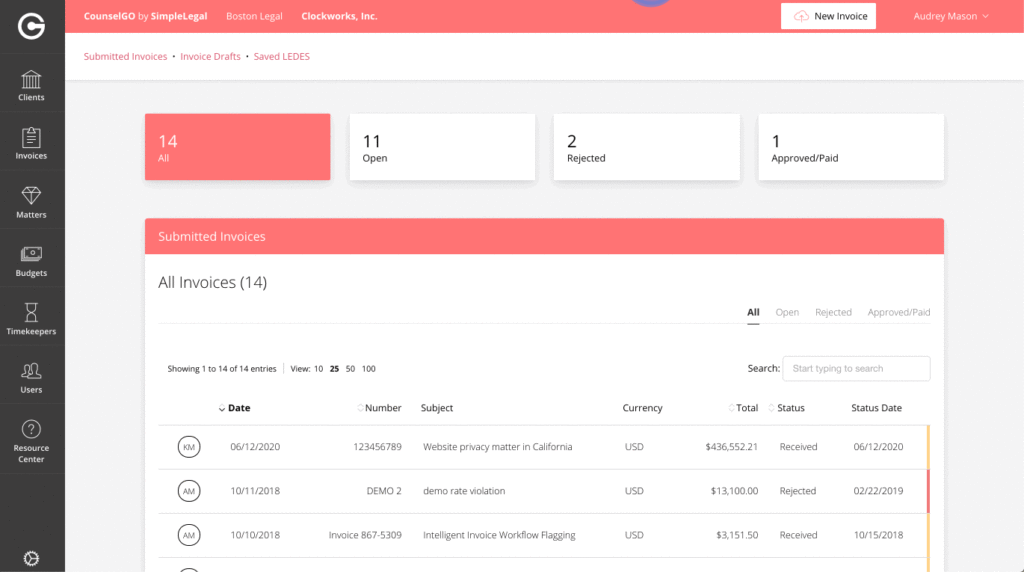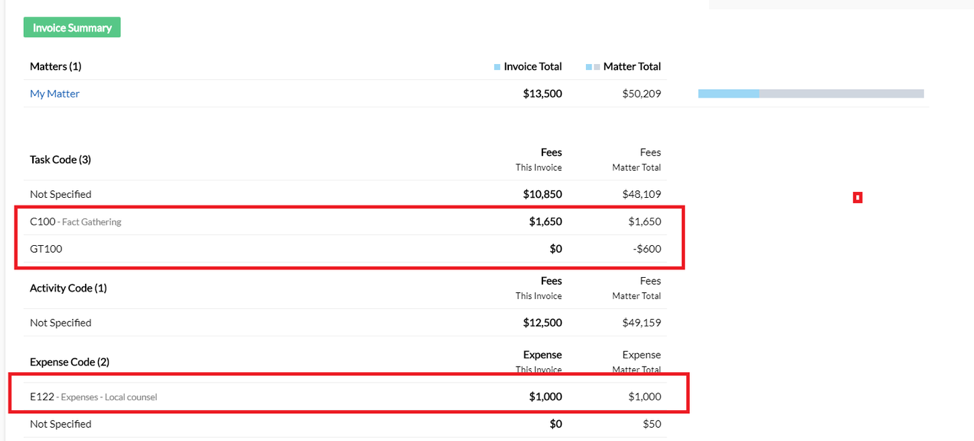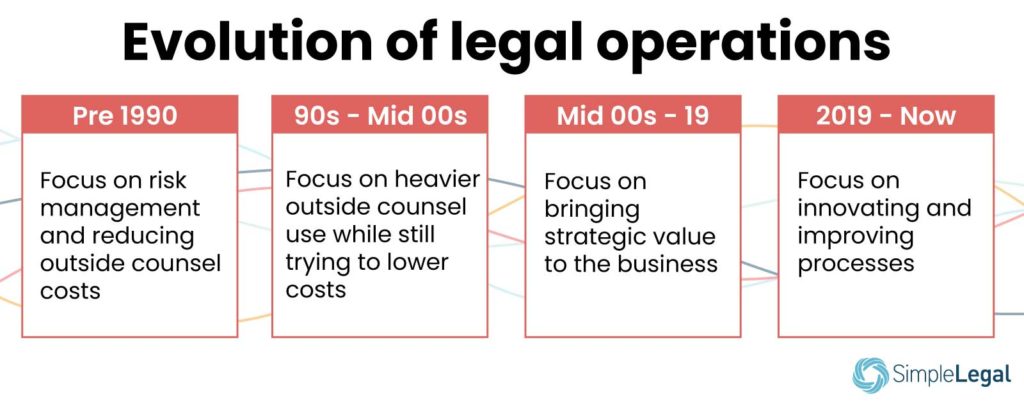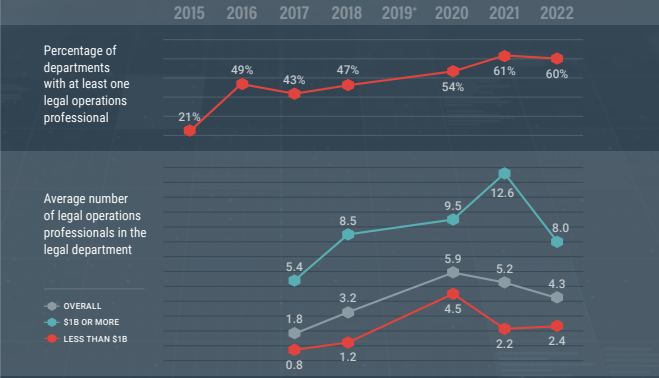
Gone are the days of only being able to learn by slogging through lengthy law books. Legal blogs offer quick, educational content that’s perfect for a mid-morning coffee break or commute. Whether you’re looking for the latest updates on a court case or tips and tricks for building your in-house career, there’s most likely a legal blogger out there who’s written on the topic.
To save you the hassle of scouring the net to find your new favorite legal blog, we put together this list of the 38 top legal blogs that cover everything from legal tech to legal ethics. Happy reading!
Top corporate law blogs
A lot of legal content out there is meant solely for law firm lawyers, making it difficult for corporate counsel to find resources that speak directly to in-house issues and topics. These top-notch blogs do just that, offering practical advice and the latest corporate legal news.
This well-known blog has a great blend of both education and humor, making for helpful and relatable reads across a variety of legal topics. It has an entire section dedicated to in-house counsel content, from leveraging billing guidelines to improving cross-department relationships.
Hilgers Graben PLLC CEO and senior counsel Sterling Miller has served as general counsel three times in his decades-long legal career, bringing a wealth of valuable in-house experience to the (online) table. Miller breaks down complex topics into 10 digestible, actionable points per post, and we love this simple structure and his narrative writing style.
This comprehensive blog from the Association of Corporate Counsel examines a wide variety of relevant topics with a corporate legal lens, including ethics and compliance, management, technology, professional development, and diversity. There are also a ton of excellent interviews with top in-house talent, sharing their opinions on the latest in-house trends and their own professional and personal tales.
This focuses on the latest industry findings and what they mean for in-house legal teams. Like a lot of the best legal blogs, they also run a mantle of additional legal resources that will help in-house professionals improve the legal services they perform for the company.
The Law Business Media blog’s mission is to “deliver the essential information needed to be a successful general counsel.” They work closely with global corporate law department leaders and outside counsel to provide insightful, expert content to readers. Count on them for articles about law department administration, procurement, career development, and in-house legal technology.
Law360’s corporate blog shares the latest legal news and analysis of issues affecting corporate counsel and the companies they work for. Frequent topics include regulation, enforcement, litigation, legislation, and governance. You can subscribe to their newsletter to get the most recent posts delivered right to your inbox.
Top legal operations blogs
Legal ops professionals play a huge part in the success of corporate legal departments — and their responsibilities continue to grow. Whether you’re a legal ops specialist or a director, you’ll find something valuable on these websites.
The Corporate Legal Operations Consortium (CLOC) blog is great for catching up on best practices in legal operations. They consistently publish high-quality posts, and their site is a go-to for conference information and data-driven reports on the latest trends in the field.
Besides our advanced legal software, we deliver continuous value to legal ops professionals with our free Learning Center. With regular blog posts, whitepapers, and other resources covering everything from legal technology tips to vendor relations and legal analytics, our blog helps legal ops readers succeed and scale. Be sure to subscribe and get the latest updates sent straight to your email.
Top legal technology blogs
Technology never stops evolving. Legal professionals who fail to stay up-to-date on the latest in legal tech will miss out on incredible tools and powerful solutions that support their work. The following blogs take care of the heavy-lifting by investigating, reviewing, and reporting on noteworthy innovations and trends.
LawSites founder Robert Ambrogi is well known for his previous roles as editor-in-chief of both the National Law Journal and LexBlog. He shares his expert insights on legal technology and interviews legal tech leaders about new products and trends. We also recommend tuning into LawNext, Ambrogi’s accompanying podcast that features legal innovators and entrepreneurs.
This blog is published by the ABA Legal Technology Resource Center (LTRC) and provides guidance on how to leverage legal technology in a variety of legal practice settings. Come here for easy-to-understand legal tech tips, case studies, and a wide catalog of recommended resources such as books, videos, and podcasts.
This blog does a great job of diving deep into the latest advances in legal technology, from machine learning and AI review to process and workflow automation. We also recommend checking out its Legal Tech Education Guide, which provides a huge list of courses to help you take your legal tech knowledge to the next level.
Top legal news blogs
Whether you want to do research for an upcoming case, dig into in-depth legal analysis, or discover upcoming legal industry events, legal news blogs can simplify your search. Check out these go-to sites for the latest on all things legal.
Think of Law.com as your all-inclusive legal newspaper. Here, you’ll find trending legal stories and expert commentary across all legal areas. It also has a ton of useful tools, such as its verdict search, legal dictionary, and CLE center.
Legal Desire is a beautifully designed website with a full range of global content, including posts from over 350 law firms and in-house teams. We appreciate the diversity of the legal community members who are profiled, and it’s also a great place to find upcoming legal networking events and conferences to attend.
Legal Reader is a legal news blog with an uncompromising ethos. They focus on the protection of consumers from corporate malpractice, making them an excellent resource for legal news junkies and corporate law specialists alike.
This not-for-profit blog covers all facets of diversity, equity, and inclusion in the legal industry, with much of its content written by individuals from traditionally underrepresented backgrounds. As founder and paralegal Iqra Ali notes, the site aims to be a “catalyst for positive change,” especially for supporting diverse law students.
This FindLaw blog offers witty takes on zanier legal topics, from “How to Have a Gender Reveal Party and Not Get Arrested” to opinions on celebrity trials and fictional legal problems in movies. You’ll learn and laugh a lot while reading here.
Top business law blogs
Business law is a broad category that encompasses both public and private law. Blogs in this space cover topics such as small business law, intellectual property, contract negotiations, and more. Take a look at these popular business law blogs, each of which occupies a different niche.
The IBLJ is an “independent peer-reviewed student publication of the University of Illinois College of Law” specializing in the intersection of business and law. It publishes content in quarterly clusters, and because part of its stated aim is “to give authors a creative and analytical outlet for legal areas that interest them,” the writing is often extra compelling.
Small business law is impressively well-accounted for in the blogosphere, and Law 4 Small Business is one of the best outlets of its kind. If you deal with small businesses, this blog is a must-read, offering from-the-field reports and legal advice on the latest small business cases.
This is an excellent platform for anyone specializing in IP law or looking to learn more about it. The IP Law Blog offers deeper insight into developments in patent, copyright, trademark, and other intellectual property-related areas.
Top criminal law blogs
Criminal law cases may dominate newspaper headlines, but finding insightful content about them written by and for legal professionals is more difficult. These blogs tackle these often dramatic and complex topics with expert insight.
This non-partisan blog publishes over 50 articles each week, making them an invaluable resource for staying on top of the latest in criminal cases. They boast a comprehensive sweep of subject areas, from policing to drug law, hate crimes, wrongful convictions, and more.
A complaint you often hear from criminal law specialists is that most high-quality online content tends to focus solely on the defense side. That’s what makes Crime & Consequences so valuable. It offers a balanced perspective from both sides of the legal equation and is arguably the best non-defense-oriented legal blog out there.
Staffed almost exclusively by law school professors with libertarian, conservative, or centrist leanings, The Volokh Conspiracy offers a thought-provoking array of opinions on US criminal law. Come here if you’re looking to explore different perspectives on hot legal topics.
Top law firm blogs
While many law firm blogs focus solely on their own announcements and legal specialties, others offer an impressive collection of legal content. In these top law firm blogs, you can discover expert opinion pieces, legal research materials, and even trending news.
As one of the most internationally renowned law firms, Kirkland & Ellis operates a robust blog with a great search interface. Their content is easily digestible, and you can find top-quality stuff on everything from cybercrime to tax reform.
This robust website is divided into a whole matrix of subject- and sector-specific legal blogs. From Middle East developments to environmental law to fintech topics, L&W has an article for everything, making them an excellent one-stop shop for legal resources.
This blog is an excellent resource for small law firms and solo practitioners, offering targeted advice and tips you won’t typically see on larger law firm sites. We especially love the heartwarming “Parents Who Practice” column, featuring inspiring stories from working parents in the field.
Top online legal magazines
Legal magazines feature a wide cast of writers and offer the kind of editorial variety you might associate with a traditional magazine as opposed to the narrower focus of blogs. You’ll also find a wider range of content types in them, from short-form articles to in-depth features.
The flagship magazine of the American Bar Association, the well-known ABA Journal offers a comprehensive overview of current events in the American legal landscape. When you’re done catching up on the latest news, be sure to check out the “Members Who Inspire” column for a feel-good boost.
This resource shares fascinating profiles and philosophies of corporate counsel across the globe. Vanguard does a great job sharing diverse stories that frequently highlight individuals from underrepresented backgrounds in legal, including women and members of the LGBTQ+ community.
This robust online legal magazine features plenty of legal news and sector insights. Their online content is categorized by practice area and region and is updated constantly throughout the day, helping you stay on top of the latest changes.
If you’re a private practice attorney, this is the legal publication for you. Here, you’ll find legal marketing and practice management advice, attorney Q&As, legal news, and local event listings.
Top legal ethics blogs
Professional conduct rules are constantly evolving, and a simple violation could cost you your hard-earned career. These blogs share tips and real-life reports of legal ethics violations, helping you avoid the same mistakes.
Phillip Segal, managing member of Charles Griffin Intelligence, shares expert insights on legal ethics on this blog. With decades of experience handling corporate investigations for Fortune 100 companies and AmLaw 100 firms, Segal’s posts are grounded in practical, real-world experience and research.
While this blog does cover topics other than legal ethics, it’s still worth checking out for its “Judicial Ethics and the Courts” category. These bite-sized posts offer quick reports on the latest court and judicial dealings connected to legal ethics, particularly in workplace settings.
This blog from Halling & Cayo shareholder Stacie Rosenzweig offers witty and informative takes on hot-topic ethics issues, from whether attorneys should have separate personal and professional devices to avoiding sharing confidential legal details with your spouse. Very fun reads on not-so-fun problems.
Top litigation blogs
These litigation blogs will help you stay on your A-game in court with the latest legal action news and expert advice.
From personal injury cases to higher-profile class actions, this American Lawyer Media blog offers expert opinions on some of the biggest legal actions and court battles in the United States. We highly recommend checking out their “Litigator of the Week” column for practice tips and tricks from some of the nation’s top litigators.
With a plaintiff law practice spanning nearly 60 years, retired attorney Paul Luvera is the go-to guy for tips on how to better present cases to juries. He’s consistently published expert advice on his blog since 2007, with a wealth of knowledge shared across his searchable monthly archives.
This blog by Herbert Smith Freehills’ litigation team covers the latest developments in litigation law, cases, practices, and class actions. Subscribe to the blog to get the newest posts sent straight to your inbox.
Bonus: Notable mentions
While these 3 legal blogs don’t fall under any of the previous categories, we still had to include them on our list of the greats.
If you like legal philosophy, you’ll love this thought-provoking blog from University of Virginia law professor Lawrence Solum. Solum breaks down complex legal theory aspects such as virtue ethics, legal positivism, legal realism, and neoformalism, giving you new lenses to appreciate and understand the world of law.
Georgetown Law professor Dan Ernst and Penn Law professor Karen Tani run this interesting blog covering the history of law, from the history of legal education to the history of the legal system. Check out their “Weekend Roundups” for a comprehensive list of the latest legal history news and webinars.
We love the variety of perspectives featured on this opinion-driven legal blog from Justia. Expert legal columnists share their thoughts across practice areas, making it a great resource to examine the latest legal issues in your areas of focus.
Liven up your learning with the SimpleLegal Learning Center
Once you’re done binging on legal blog content, switch things up with our lists of the top legal podcasts and top law books. And speaking of legal blog content, be sure to check out and subscribe to the SimpleLegal Learning Center for the latest in legal ops, legal tech, and corporate legal.


















 A little over two years ago, Onit launched its contract lifecycle management (CLM) solution, helping Fortune 500 companies streamline the complex processes of buy-side, sell-side and corporate contract administration. The
A little over two years ago, Onit launched its contract lifecycle management (CLM) solution, helping Fortune 500 companies streamline the complex processes of buy-side, sell-side and corporate contract administration. The 

